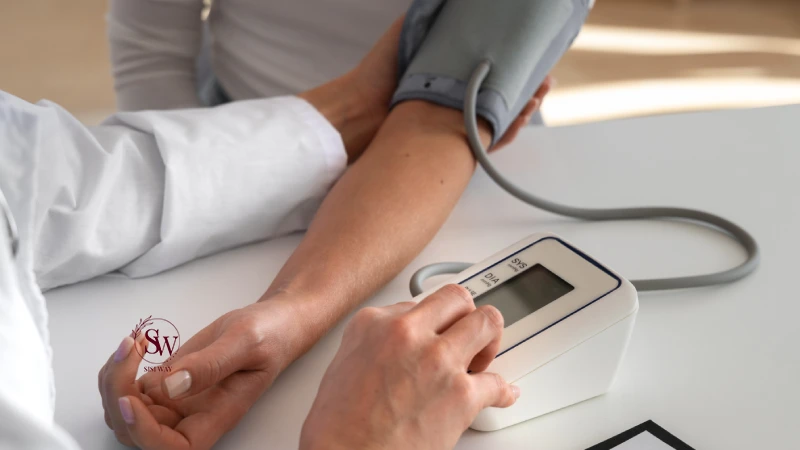
Menopause is a natural biological process that marks the end of a woman’s menstrual cycle. It typically occurs in women in their late 40s or early 50s, signaling the end of their reproductive years. Menopause is a significant milestone in a woman’s life and is often accompanied by various physical and emotional changes. In this article, we will explore everything you need to know about menopause, including its symptoms, causes, and treatment options.
What is Menopause?
Menopause is a normal, natural process that occurs as a woman’s ovaries stop producing eggs and her hormone levels decline. It is officially diagnosed after a woman has gone 12 consecutive months without a menstrual period. Menopause is a gradual process that occurs in three stages: perimenopause, menopause, and postmenopause.

Perimenopause
Perimenopause is the transitional period leading up to menopause. It can last for several years, during which a woman may experience irregular menstrual cycles and symptoms such as hot flashes, night sweats, and mood swings. Hormone levels, particularly estrogen, begin to fluctuate during this stage, leading to changes in the menstrual cycle and other symptoms.
Menopause
Menopause is officially diagnosed when a woman has not had a menstrual period for 12 consecutive months. At this point, the ovaries have stopped releasing eggs, and estrogen levels have significantly decreased. Menopausal symptoms may include hot flashes, vaginal dryness, sleep disturbances, and mood changes. The average age of menopause in the United States is 51, but it can occur earlier or later for some women.
Postmenopause
Postmenopause refers to the years after menopause has occurred. During this stage, menopausal symptoms may continue, but they often decrease in intensity. Estrogen levels remain low, which can lead to long-term health effects such as osteoporosis and heart disease. Women need to continue monitoring their health and discussing any concerns with their healthcare provider during postmenopause.
Symptoms of Menopause

Menopausal symptoms can vary widely from woman to woman, but some of the most common symptoms include:
- Hot flashes
- Night sweats
- Sleep disturbances
- Vaginal dryness
- Mood swings
- Fatigue
- Memory problems
- Weight gain
It is important to note that not all women will experience these symptoms, and some women may experience them to a greater or lesser degree than others.
Causes of Menopause
Menopause is a natural part of the aging process for women and is caused by a decline in hormone levels, particularly estrogen. As women age, their ovaries produce less estrogen, leading to changes in the menstrual cycle and eventually menopause. Other factors that can contribute to early menopause include genetics, smoking, chemotherapy, and certain medical conditions.
Treatment Options for Menopause

There are several treatment options available to help manage the symptoms of menopause. These include:
- Hormone therapy: Hormone therapy involves taking estrogen alone or estrogen with progesterone to help alleviate menopausal symptoms. It is most effective when started around the time of menopause.
- Non-hormonal therapies: Non-hormonal therapies, such as certain antidepressants and anti-seizure medications, can help manage symptoms like hot flashes and mood swings.
- Lifestyle changes: Making lifestyle changes such as eating a healthy diet, exercising regularly, and practicing stress-reducing techniques can help manage menopausal symptoms.
- Alternative therapies: Some women find relief from menopausal symptoms through alternative therapies such as acupuncture, yoga, or herbal supplements. It is important to discuss these options with a healthcare provider before trying them.
How Long Should Menopause Last?

The duration of menopause can vary from woman to woman. On average, perimenopause, the stage leading up to menopause, can last for about four years, but it can range from a few months to as long as 10 years. Menopause itself, defined as the absence of menstruation for 12 consecutive months, typically lasts for a few years, with the average duration being around four years in the United States. However, some women may experience menopausal symptoms for a shorter or longer period. Postmenopause, the stage after menopause, lasts for the rest of a woman’s life.
During perimenopause and menopause, hormone levels fluctuate, leading to changes in the menstrual cycle and symptoms such as hot flashes and mood swings. These symptoms usually improve over time as hormone levels stabilize. However, it is important to note that some women may continue to experience symptoms well into postmenopause.
The duration of menopause is influenced by various factors, including genetics, lifestyle, and overall health. Women who smoke or have certain medical conditions may experience menopause at an earlier age and may have a longer duration of symptoms. Regular exercise, a healthy diet, and stress management techniques may help reduce the duration and severity of menopausal symptoms.
FAQs
- When should menopause start?
The average age of menopause in the United States is 51, but it can occur earlier or later for some women. - What are the symptoms of menopause?
Menopausal symptoms can include hot flashes, night sweats, sleep disturbances, vaginal dryness, mood swings, and fatigue, among others. - What are the long-term health effects of menopause?
Estrogen levels remain low after menopause, which can lead to long-term health effects such as osteoporosis and heart disease.
In conclusion, menopause is a natural part of the aging process for women that is marked by the end of menstrual cycles. It is accompanied by various physical and emotional changes, but there are treatment options available to help manage symptoms. It is important for women to discuss any concerns with their healthcare provider and to continue monitoring their health during and after menopause.





